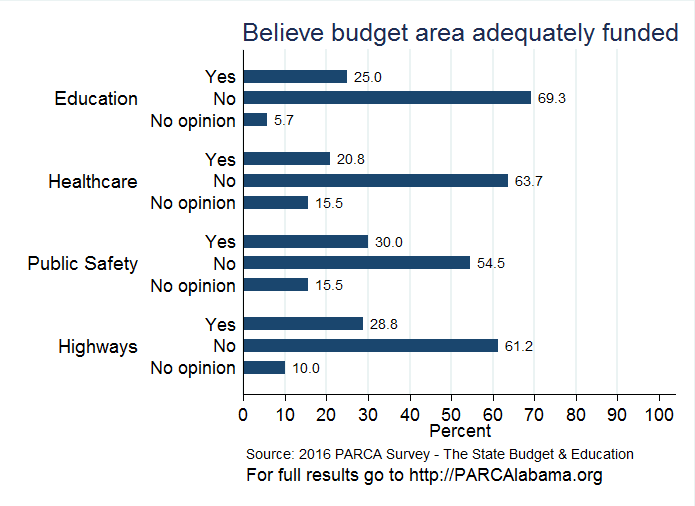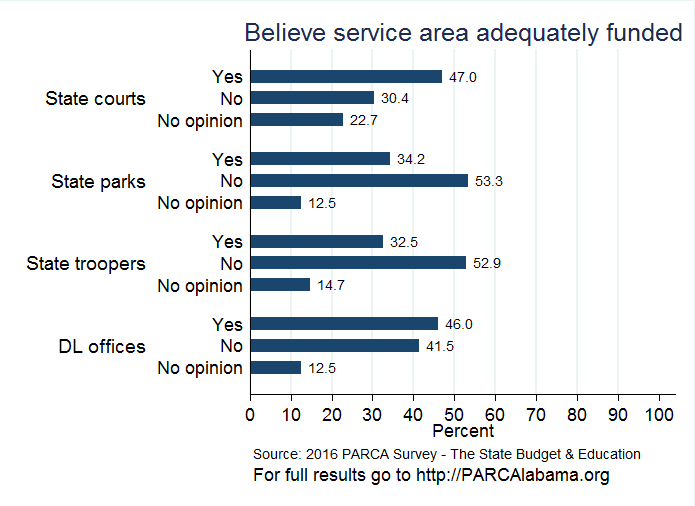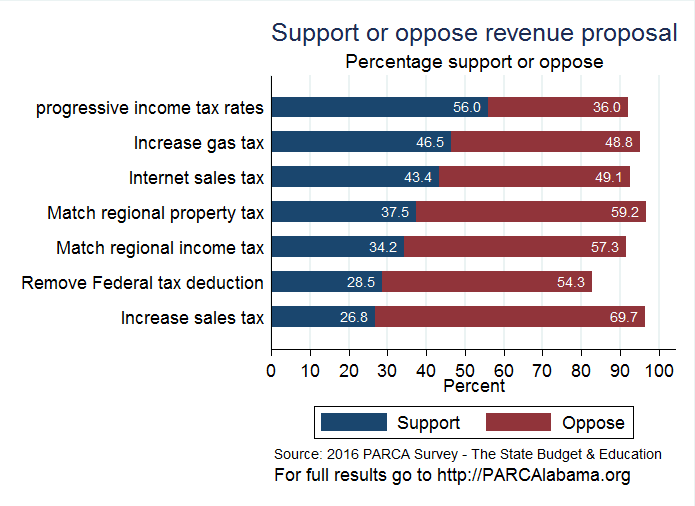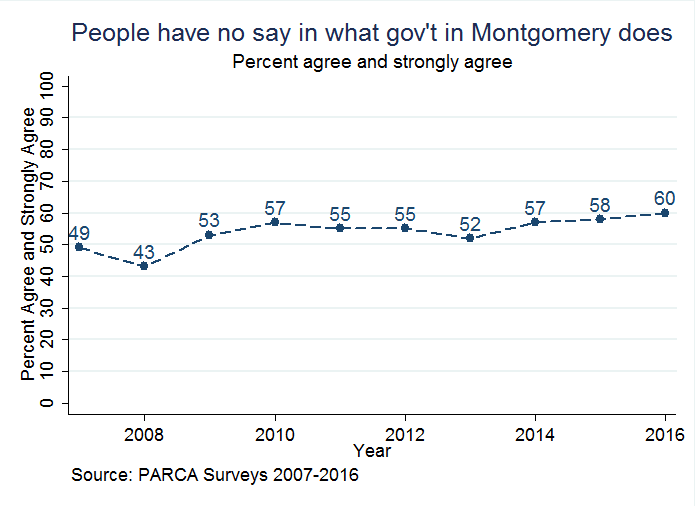Majority of Alabamians Willing to Pay More for Education and Healthcare
A majority of Alabamians believe key state services are not adequately funded and would be willing to pay more in taxes to avoid cuts in education and healthcare for the poor and elderly. That’s among the findings of an annual public opinion survey conducted by the Public Affairs Research Council of Alabama. However the research group found Alabamians are less willing to support tax increases to raise revenue.
About 48 percent of respondents say education is the most important service provided by the state with healthcare for the poor and elderly following at 31 percent. Majorities also believe education and healthcare, along with other key budget items, are not adequately funded.


The expressed support for education is long-standing says Samford University political scientist Randolph Horn. He oversaw the PARCA survey.
“One question we’ve asked dates back over 20 years and Alabamians consistently report that they think education should be better funded,” says Horn.
But those responses are in the abstract. When it comes to specific revenue measures to maintain or increase funding for state programs, support is much lower.

This year’s survey asked about expanding Medicaid under the Affordable Care Act. Governor Robert Bentley says he’s opposed to expanding Medicaid in its current form, although he’s softened his language against it over the last year. The PARCA research shows a majority, about 54 percent, support expanding Medicaid. But the support splits when considering political party.
 Horn emphasizes the survey results have been mostly the same through the years, but there does seem to be a trend when it comes to what residents think of state leaders in Montgomery.
Horn emphasizes the survey results have been mostly the same through the years, but there does seem to be a trend when it comes to what residents think of state leaders in Montgomery.
“There’s evidence that there’s an increasing sense of alienation from state government,” says Horn.


Additionally, about 60 percent believe earmarking revenue is good. Much of state revenue is earmarked leaving state lawmakers less flexibility in appropriating funds.
Overall, Horn says the survey responses don’t vary much by demographic groups.
“In that way the public seems to be different than some of the elites in politics or political leaders,” says Horn. “They are trying to distinguish themselves from each other or one party or the other. We see a lot of unity in the public.”
The phone survey was conducted from January 4 to January 21, 2016. It has a margin of error of +/- 4.5 percent. You can find more results from the survey here.
Mississippi health system shuts down clinics statewide after ransomware attack
The attack was launched on Thursday and prompted hospital officials to close all of its 35 clinics across the state.
Willie Colón, salsa pioneer, has died at 75
The South Bronx bandleader took the Latin genre to new heights while recording for Fania Records.
Vietnam Veterans sue to block proposed ‘Independence Arch’ near Arlington National Cemetery
The lawsuit challenges President Trump's plans for "Independence Arch," a 250-foot structure proposed for Memorial Circle.
Trump to raise global tariffs to 15%
President Trump previously said he would implement 10% global tariffs after the U.S. Supreme Court struck down his tariff policies.
Pin trading has taken over the Olympics. Here’s what it’s like in Milan
Pin trading has become a hallmark of the Olympics in recent decades — and not just for athletes. An official trading center in Milan was a hotspot for longtime collectors and curious newcomers alike.
US military airlifts small reactor as Trump pushes to quickly deploy nuclear power
The Pentagon and the Energy Department have airlifted a small nuclear reactor from California to Utah, demonstrating what they say is potential for the U.S. to quickly deploy nuclear power for military and civilian use.





